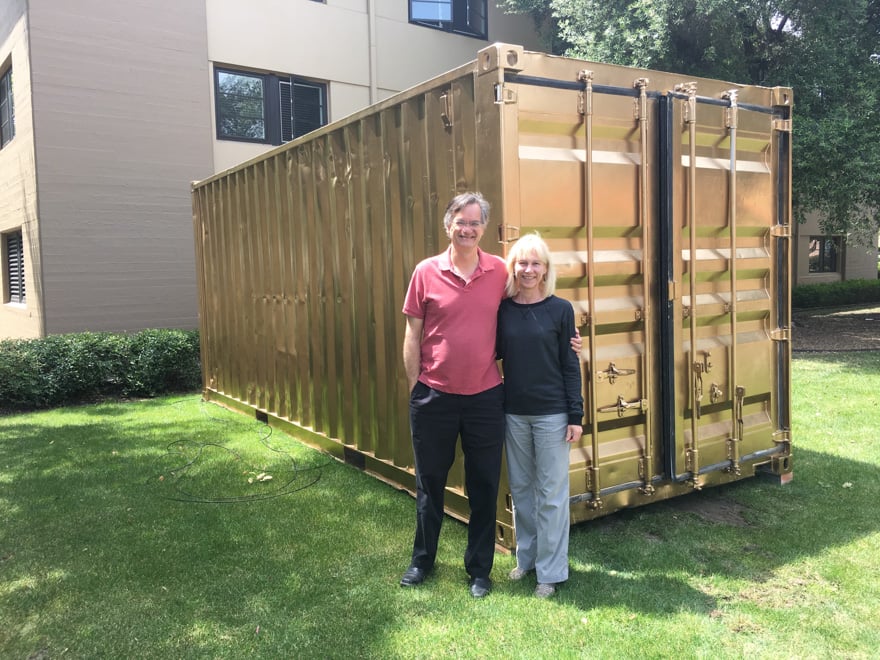The Stanford Portal, a long-distance video-chatting booth which facilitates conversation between Stanford students and individuals in portals in Kigali, Rwanda, Heart, Afghanistan and Mexico City, has been operating outside of Crothers Memorial since May 2. So far, student experiences have been overwhelmingly positive.
Caroline Neel, Stanford’s Portal Curator, explained the appeal.
“We’re trying to recreate something that’s pretty normal, like meeting a stranger,” Neel said.
According to Neel, an important part of the experience is to make the user feel like they are having a normal conversation. To do so, Shared_Studios – the collective leading the project – takes empty shipping containers and fits them with carpet to create a natural room environment. Live footage from the other portal is then projected onto the wall.
“You’re seeing a life-size person as if they’re really there,” Neel said.
Every portal operates in the same way. According to Neel, this creates parallel experiences in completely different parts of the world.
Savannah Pham ’18 had a conversation with a 27-year-old man from Kigali.
“First it [was] a little awkward, because I’ve never seen this person and never experienced his culture before, but it got a lot easier,” Pham said. “We ended up bonding over the fact that we like helping other people and want to go into education.”
Discovering similarities between the people using the portal has been a common theme for Stanford students. According to Pham, the experience gave unique insight into how completely different countries and cultures can still have shared experiences in their day-to-day lives.
Although a translator was present, just in case, almost all communication occurs without the help of the translator, which students describe as adding similarity and comfort to the conversation.
Neel echoed this idea, adding that these interactions served to break down cultural barriers.
According to Neel, who talked to different students after their sessions in the portal, this facilitation of dialogue is very important in the current politically charged times. Some students, she said, came out wanting to discuss the need for discourse between Middle Eastern countries like Afghanistan and the United States to stop cultural preconceptions we may have.
Neel also recounted one of the Portal interactions in which a Stanford student played ukulele in the portal while the Rwandan person sung along from the other side of the world.
In another case, a student from Seattle who had conversed with an individual from Kigali, Rwanda, who is visiting Seattle in six months. Neel exchanged their email information so they can meet in person.
Since these conversations are brief, many of the participants choose to avoid small talk and often focus on more intimate questions. As a result, people can grow close in these exchanges.
“He asked me, ‘so what is your dream?’ and it caught me off guard, because people here don’t ask me that,” Pham said.
The Portal will be open to students who make reservations until May 12.
Contact Max Pienkney at [email protected].
